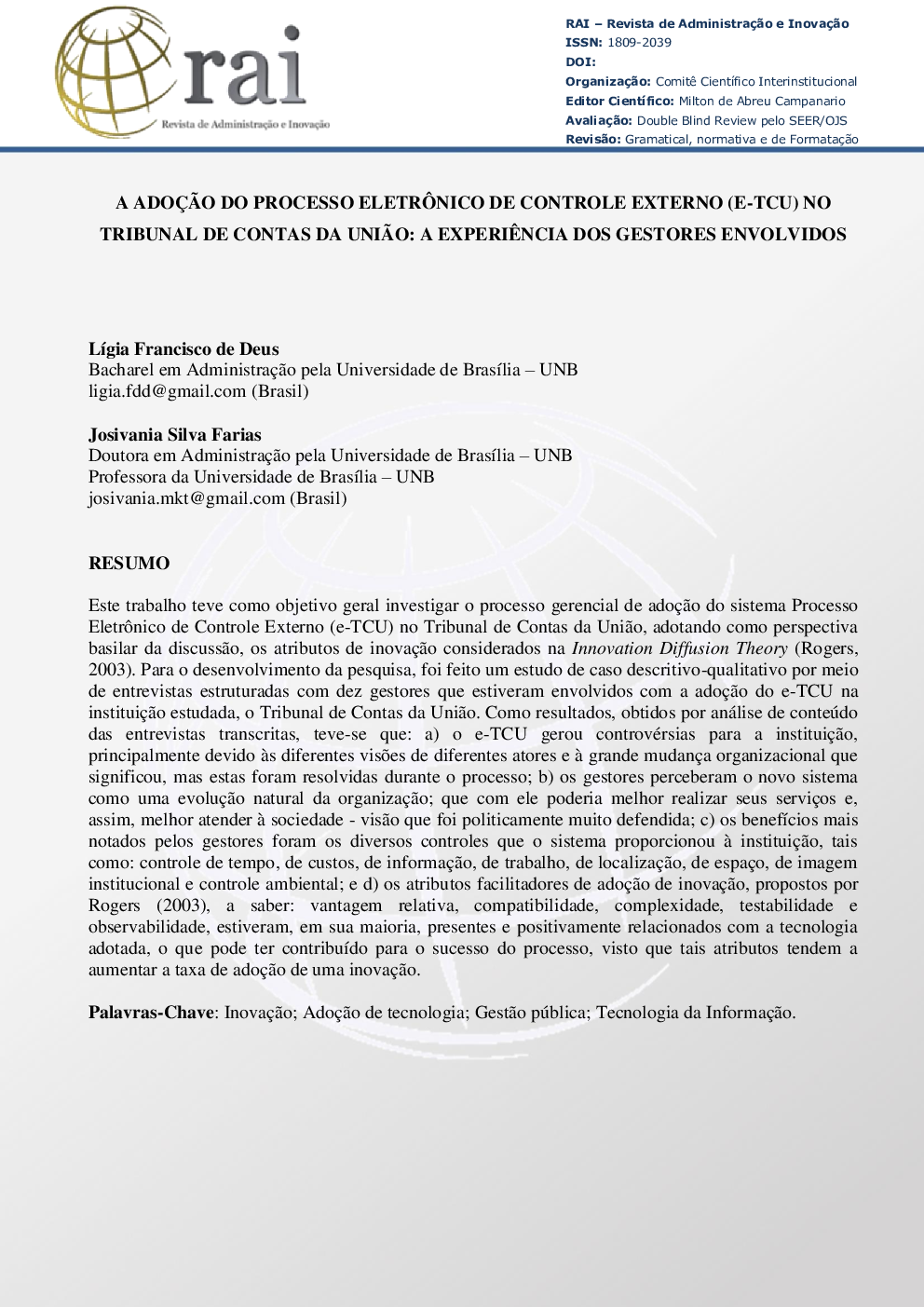| Article ID | Journal | Published Year | Pages | File Type |
|---|---|---|---|---|
| 7429938 | RAI Revista de Administração e Inovação | 2015 | 24 Pages |
Abstract
This work aimed to investigate the managerial process of adopting the system Electronic Process External Control (e-TCU) in the Brazilian Court of Auditors (TCU), adopting as a basic perspective for discussion, the innovation attributes considered in the Innovation Diffusion Theory (Rogers, 2003). To conduct this research a qualitative descriptive case study was done through structured interviews with ten managers involved in adopting the e-TCU. With the results, obtained by a thorough content analysis of the interview transcripts, it was possible to see that: a) the e-TCU was controversial in the institution, especially because of the different opinions of different parties involved and because of the necessary great organizational change, but these were solved during the process; b) the managers understood the new system as a natural evolution of the organization; they understood that with it they could better do their Jobs and, in consequence, better serve the society - a politically supported view; c) The benefits most noticed by them were the different controls the system provided the institution with, like: time management, expenditures, information, work, place, space, environmental and institutional image controls; and d) the factors that impact the adoption of innovation, proposed by Rogers (2003), to know: relative advantage, compatibility, complexity, trialability and observability, were, in their majority, present and positively related with the adopted technology, what may have contributed to the success of the process, once these factors tend to increase the innovation adoption rate.
Related Topics
Social Sciences and Humanities
Business, Management and Accounting
Management of Technology and Innovation
Authors
LÃgia Francisco de Deus, Josivania Silva Farias,
